Will this smart pillbox really keep you from forgetting your meds?
It could be a game-changer for forgetful pill-takers like me.
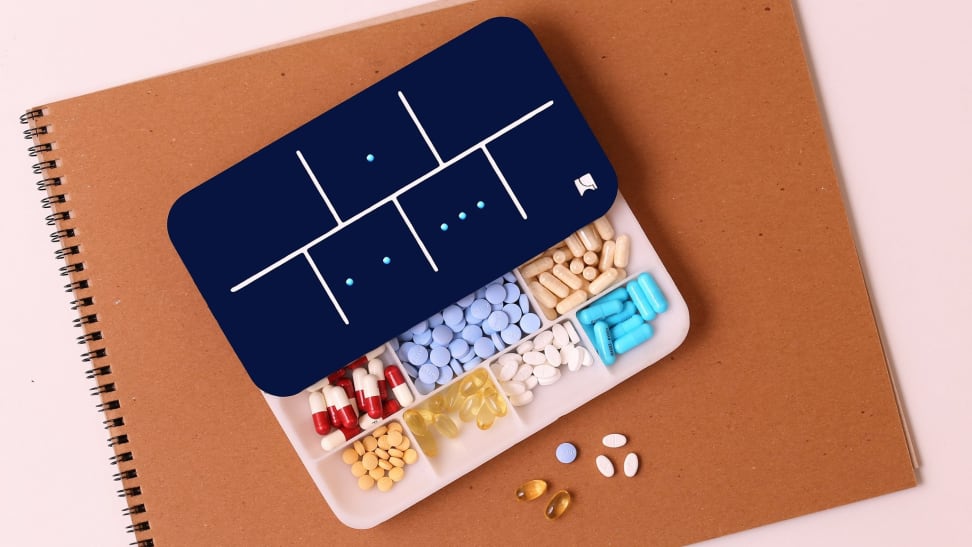 Credit:
EllieGrid
Credit:
EllieGrid
Products are chosen independently by our editors. Purchases made through our links may earn us a commission.
I’ll be the first person to admit I’m genuinely bad at remembering to take medications. I’ve been taking a daily pill for almost 10 years now, and yet pretty much every day I find myself wondering, “Crap, did I take my pill this morning?”
I’ve tried setting an alarm on my phone, and I inevitably just snooze it and forget to actually take the medication. So when I heard about EllieGrid, a smart pill box, my thought was something along the lines of, “My prayers have finally been answered. Hallelujah!”
Intrigued as to whether the EllieGrid would be the answer to my medication woes, I tested out this smart pill box to see if it was the solution for forgetful pill-takers like me.
What is EllieGrid?
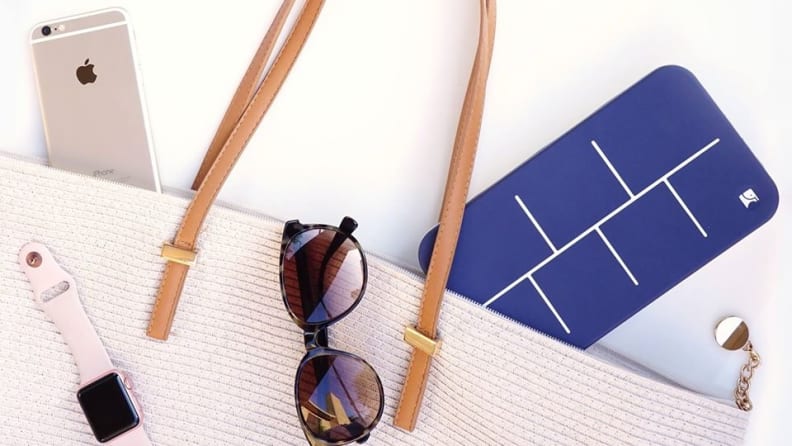
The EllieGrid is a pill box that syncs with your phone.
As mentioned above, EllieGrid is a smart pill box, meaning it syncs up with an app on your phone. It costs $149, and its built-in technology aims to make medication management easier by reminding you to take medications, providing guidance on how to take your pills, and even tracking your compliance.
The pill box itself is fairly big, measuring 7.7-by-4-inches. The size is comparable to a graphing calculator, but it’s fairly lightweight, as the whole thing is made from plastic. The EllieGrid pill box is wireless and comes with a charging cable, and the battery lasted for about a week after each charge.
The box has seven inner compartments, all of which can hold a full bottle of small pills. If you take larger pills, EllieGrid says you can probably fit around seven pills into the bigger compartments. There’s also an option to set alarms for medications that don’t fit inside the box, such as inhalers or liquids.
How does it work?
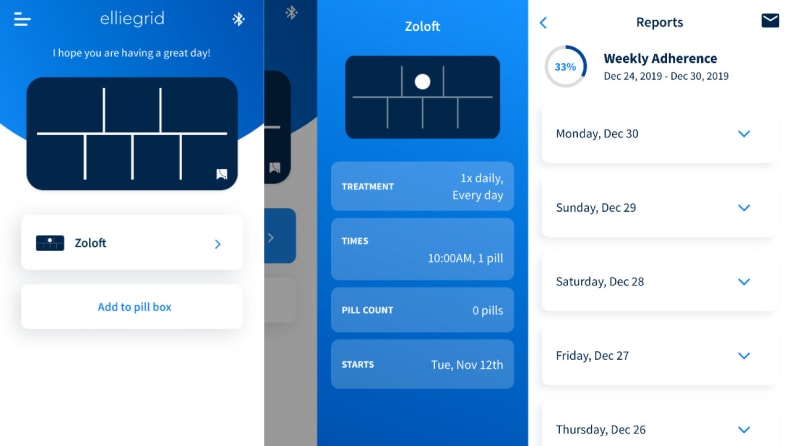
The EllieGrid app lets you input details about your medications.
When you set up EllieGrid via your smartphone, you indicate which medication you’re putting in each compartment, and then enter what time you need to take the medication and how many pills you take per dose. There are a number of alarm sounds to choose from, and you can adjust the volume via the app.
When it’s time to take a pill, the box goes off like an alarm clock, and you’ll also receive a push notification on your phone. The blue lid has a diagram of the inner compartments on the top, and when you slide the lid open, the number of lights on the diagram indicate how many of each pill you need to take.
You can only shut off the box's alarm by opening and closing the pill box, and once you do this, the app will register that you’ve taken the medication. Alternatively, you can hold down the elephant logo on the box to skip the dose.
I think it’s important to note you can’t silence the alarm from your phone, and there’s no “snooze” button—the alarm will go off until you either take your pill or skip the dose. Even if you take your pill before the alarm sounds, the app won’t register it. The only way to mark a medication as taken is by opening the box when the alarm is sounding, which I found to be quite frustrating.
What are the benefits?
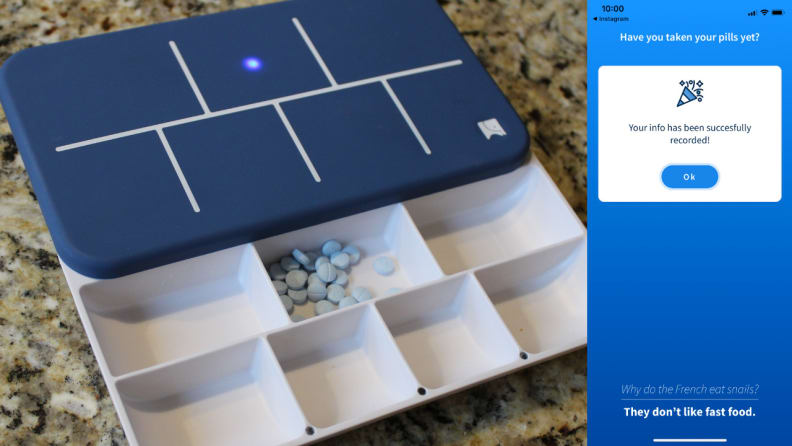
EllieGrid sends you a cute riddle with each alarm.
As claimed, EllieGrid did make sure I took my medication every day. The alarm would sound at 10 a.m., and no matter what I was doing, I had to stop and take the pill. Because there’s no snooze or alarm silencing via your phone, I couldn’t simply ignore the alarm like I normally would, which turned out to be quite effective.
I also like that the smartphone notifications came with a new riddle each day—it’s a bit more engaging than just receiving a notification that says, “Hey, take your medication.” But it took me several days to figure out how to see the answer to the riddles—you have to open the app and indicate that you took the pill.
I can see the EllieGrid being more useful for those who have to take several medications at specific times throughout the day, as you can set as many alarms as you need. Plus, the lights serve as a helpful guide to show you just how many of each pills you need to take.
What are the downsides?
Effectiveness aside, there were actually quite a few things I didn’t like about the EllieGrid that led me to stop using it.
It’s just too big
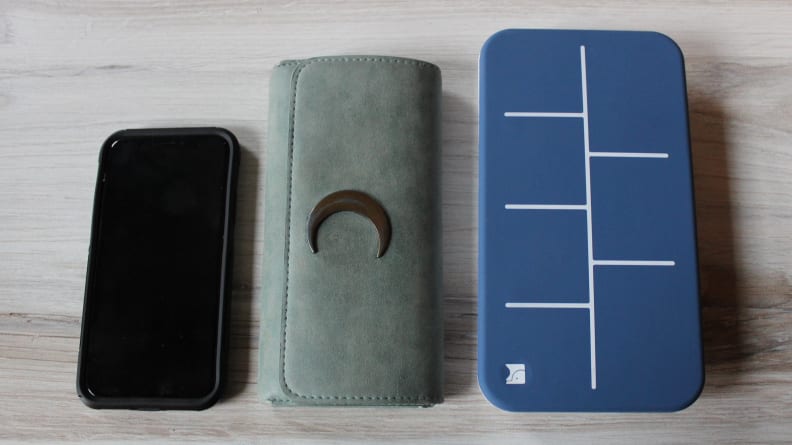
Here's the EllieGrid next to my wallet and iPhone X.
Given that I only take one pill a day, I found the EllieGrid to be way too big for my needs. Personally, I would much rather have a smaller pill box with one or two compartments that could easily fit in my purse.
The company does imply in its FAQ section that more sizes may be coming sometime in the future, but in the meantime, it’s either this gigantic seven-compartment option or nothing.
It’s not all that smart
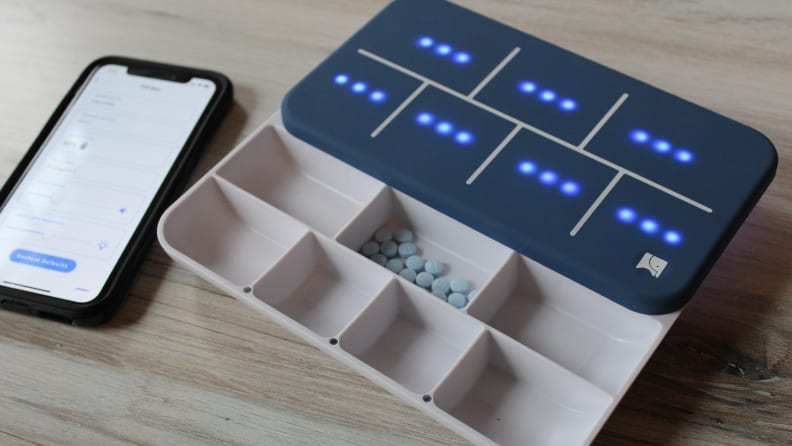
I expected more features from this pricey "smart" device.
What intriuiged me about the EllieGrid was a promise of a smart device that could help me remember to take my pills. But this pill box isn’t what I was expecting—it’s more of an alarm clock than anything else.
For instance, as mentioned before, the box doesn’t register if you take your pill a few minutes early. The alarm will still go off at the designated time, and you’ll have to go open and shut the box again to turn it off. The lack of snooze or silencing the alarm from your phone was ultimately a nuisance if you’re in the middle of something when it goes off.
For a device marketed as a “smart” product, it just doesn’t have many of the features I’d expect. Yes, it connects to your phone, but the technology isn’t impressively useful or advanced, especially considering its high price.
You have to pay for key features
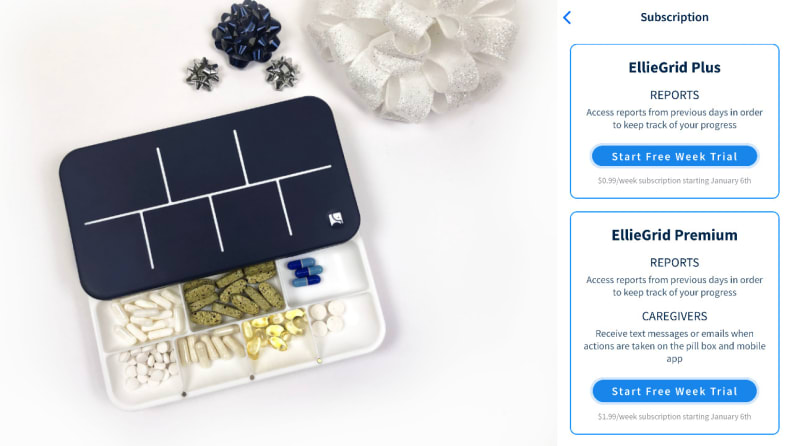
You have to purchase access to certain features on your EllieGrid.
Speaking of price, there are a lot of in-app purchases you have to make to get the most out of this product. For instance, two of the main selling points of the EllieGrid are that 1. it creates reports based on your activity, and 2. it can be used by caregivers to remotely monitor medication compliance. But you have to pay a weekly subscription for both of these features.
If you want access to past progress or compliance reports, it costs $2.99 per month. You get access to that day’s report for free, but anything else is extra. Further, if caregivers want to get alerts when medications are missed, it costs an extra $7.99 per month. Personally, I think that's a little steep on top of the $149 price tag.
Is it worth it?
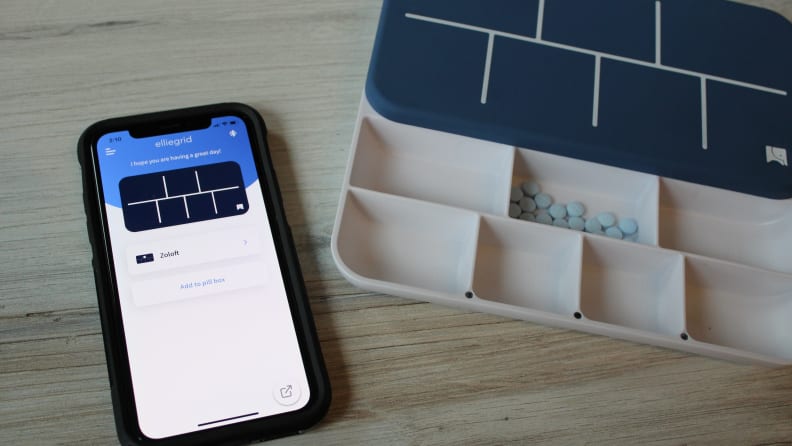
At the end of the day, the EllieGrid wasn't for me.
I was initially quite excited about the EllieGrid, but ultimately, it didn't suit my needs. Within a few weeks, I stopped using it because the alarm was bothersome and always went off while I had my hands full with something, forcing me to listen to it chime until I could get up to turn it off.
But I will admit I never forgot to take my medication while using the EllieGrid. While it may be annoying, it is effective in that way.
Overall, I think the EllieGrid would be most beneficial for people who have a very specific or complex medication schedule, or even for caregivers who want to monitor someone else's medications. If you're like me and simply can't remember to take one pill, this product probably isn't worth the cost.
